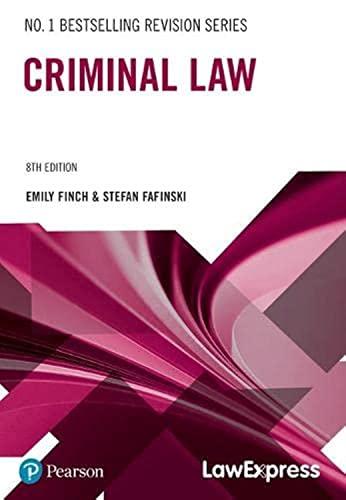Question
Introduction: Mark is a senior software engineer at a video game design company based in Vancouver, B.C. The company, DigiPlay (DP), is very successful with
Introduction:
Mark is a senior software engineer at a video game design company based in Vancouver, B.C. The company, DigiPlay (DP), is very successful with numerous popular titles and services. Over the last few years, its growth strategy has shifted to a service model rather than relying on titles. DP's head office is in Vancouver and has offices and development campuses globally.
Mark has a Master of Science degree from UBC. He has worked at DP since he graduated from the UBC program eight years ago. He received a work experience opportunity while in the MSc program and was offered a position after graduation. DP is a good company to work for. It pays well and has many perks, including stock options, education opportunities, and progressive leave arrangements. Mark has done very well at the company, has always received glowing performance reviews, and now manages a team of five engineers.
After the data breach debacle, DP was looking to improve its security and data protection abilities. One way they decided to do it was to buy another company. The company is a Texas-based software firm that specializes in gaming security. Secure Tech had developed new encryption software that was intended for gaming platforms. They also had some of the best programmers specializing in security, and DP wanted to bring the talent into the company.
Mark was part of the team that went to Texas to meet and begin negotiations. Mark had great people skills, and the executive team asked him to come along. The DP team toured the Secure Tech facility, observed the engineers at work, and had great dinners with Secure Tech representatives. Near the end of the trip, negotiations started. During a dinner, the CEO of DP asked the CTO of Secure Tech about a particular piece of code and whether it was patented. The code was an essential piece of Secure Tech's encryption software. The CTO answered, "yes, we just received patent approval last week."
The CEO of DP wanted the deal done fast. The class-action hurt DP and the acquisition's completion would restore investor confidence. He wanted to announce the deal as soon as possible and close before year-end. Because of the rush, the contracts were sloppy, and the due diligence was minimal.
After the deal was completed, Katie noticed that Secure Tech did not actually have a patent for the code. The CTO had mixed up the code that the CEO had asked about with another patent that Secure Tech had obtained. After the acquisition, the patent application for the code was rejected due to a technicality. Shortly after, another company was able to secure a patent for a similar code.
The CEO of DP is very upset. He would not have paid such a high price for Secure Tech if he knew there was no patent. He wants to sue the former CTO of Secure Tech for the loss. Katie is tasked with providing an opinion on DP's legal options.
Using the IRAC (Issue, Rule, Application, Conclusion) method, analyze the options available to DP. Include at least one case from BC or another Canadian jurisdiction that states the law applicable to this problem in your analysis.
(25 marks; Max fifteen hundred words /please provide references and links for the answers for better understanding and accessibility.)
Step by Step Solution
There are 3 Steps involved in it
Step: 1

Get Instant Access to Expert-Tailored Solutions
See step-by-step solutions with expert insights and AI powered tools for academic success
Step: 2

Step: 3

Ace Your Homework with AI
Get the answers you need in no time with our AI-driven, step-by-step assistance
Get Started


